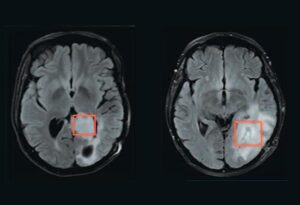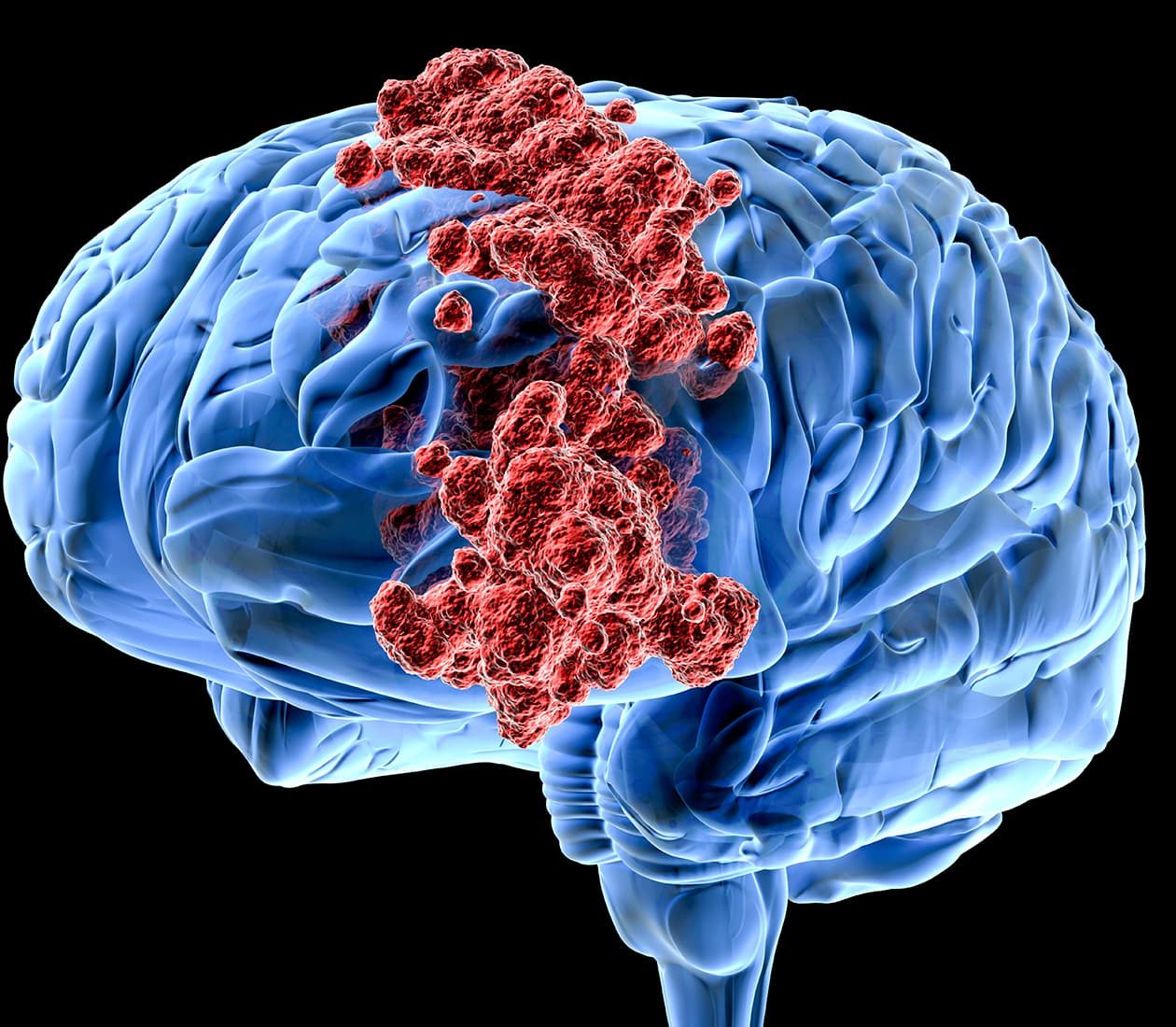
Brain & Spine Tumors
Welcome to our Brain & Spine Tumor resource page. If you or a loved one has been diagnosed with a brain or spine tumor, we’re here to help you understand what’s happening and what to expect. Our goal is to provide clear, simple information so you feel supported and empowered on your journey.
What is Brain & Spine Tumor?
A tumor is an abnormal growth of cells in the body. When a tumor forms in the brain or spinal cord, it’s called a brain or spine tumor. These tumors can affect how your brain or spine works, but with the right care, many people live full and meaningful lives.

Types of Brain Tumor
- Benign (Non-Cancerous): These tumors grow slowly and are less likely to spread. They can still cause problems by pressing on nearby areas.
- Malignant (Cancerous): These tumors grow faster and may spread to other parts of the brain or spine or body. They often need more aggressive treatment.
- Primary Tumors: Start in the brain or spine.
- Secondary (Metastatic) Tumors: Start in another part of the body (like the lungs or breast) and spread to the brain or spine.
Every tumor is different, and your doctor will explain which type you have and what it means for you.
What Causes Brain & Spine Tumors?
- Genetic conditions: Certain rare conditions that run in families may increase the chance of developing tumors.
- Radiation exposure: Past radiation treatments to the head may raise the risk.
- Other factors: Research is ongoing, but things like lifestyle or cell phone use haven’t been proven to causing these tumors.
Most tumors happen by chance, and there’s no way you could have prevented it. What matters now is getting the right care.
Common Symptoms
Brain and spine tumors can cause different symptoms depending, depending on their size, location, and how fast they’re growing. Some common signs include:
- Headaches: Often worse in the morning or when lying down.
- Seizures: Sudden shaking or changes in awareness.
- Weakness or numbness: In arms, legs, or face.
- Balance or walking problems: Feeling unsteady or clumsy.
- Changes in vision, hearing, or speech: Blurry vision, ringing in ears, or trouble speaking.
- Memory or personality changes: Trouble remembering things or feeling like yourself.
- Back pain or neck pain: For spine tumors, pain that doesn’t go away or gets worse.
If you’re experiencing these symptoms, it doesn’t mean you definitely have a tumor, but it’s important to talk to a doctor to find out what’s going on.
How Are Brain & Spine Tumors Diagnosed?
If your doctor suspects a tumor, they’ll use a few tests to get a clear picture:
- Imaging Tests: MRI or CT scans take detailed pictures of your brain or spine to look for tumors.
- Biopsy: A small sample of the tumor is taken and tested to find out if it’s benign or malignant.
- Neurological Exam: Your doctor checks your reflexes, strength, balance, and senses to see how the tumor might be affecting you.
Your care team will explain each step and make sure you feel comfortable with the process.
Treatment Options
There are many ways to treat brain and spine tumors, and your doctor will create a plan that’s best for you. Common treatments include:
1. Surgery
- Surgery removes as much of the tumor as possible.
- New technology, like image-guided surgery, helps doctors be precise and keep healthy tissue safe.
- Not all tumors can be fully removed, but surgery can often reduce symptoms.
2. Radiation Therapy
- Uses high-energy beams to shrink or destroy tumor cells.
- It’s often used after surgery or for tumors that can’t be removed.
- Modern techniques, like stereo tactic radiosurgery (e.g., Gamma Knife), target tumors with pinpoint accuracy.
3. Chemotherapy
- Medicines that kill cancer cells or stop them from growing.
- May be taken as pills or through an IV.
- Often used for malignant tumors or tumors that have spread.
4. Targeted Therapy
- Newer drugs that attack specific parts of tumor cells, leaving healthy cells alone.
- These are often gentler on the body than chemotherapy.
5. Watchful Waiting
- For some slow-growing, benign tumors, your doctor may recommend regular checkups and scans to monitor the tumor without immediate treatment.
Your treatment plan will depend on the type, size, and location of the tumor, as well as your overall health and preferences. Your care team will explain the benefits and possible side effects of each option.
Managing Side Effects
Treatments can sometimes cause side effects, like fatigue, hair loss, or memory changes. Your care team can help you manage these with:
- Medications: To reduce swelling, prevent seizures, or ease pain.
- Rehabilitation: Physical, occupational, or speech therapy to help you stay strong and independent.
- Counseling: Emotional support to help you cope with changes.
- Nutrition and Exercise: Tips to keep your body and mind healthy during treatment.
You don’t have to go through this alone—your team is here to support you every step of the way.
Living with a Brain or Spine Tumor
A diagnosis can feel overwhelming, but many people live well with brain or spine tumors. Here are some tips to help you:
- Ask Questions: Write down any questions for your doctor to make sure you understand your condition and treatment.
- Stay Connected: Lean on family, friends, or support groups for encouragement.
- Take Care of Yourself: Rest when you need to, eat healthy foods, and do gentle activities like walking if your doctor says it’s okay.
- Find Support: Counselling or support groups can help you process your feelings and connect with others who understand.
Why Choose Us?
At LifeLong NeuroCare, we provide compassionate, expert care for brain and spine tumors. Our team includes:
- Neurosurgeons: Specialists in brain and spine surgery.
- Oncologists: Experts in cancer treatment.
- Radiologists and Radiation Oncologists: Skilled in imaging and radiation therapy.
- Nurses and Therapists: Dedicated to supporting your recovery and well-being.
We use the latest technology and research to offer personalized treatment plans, and we’re here to answer your questions and guide you through every step.